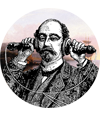Writing a Proposal
Categories:
From A PRACTICAL GUIDE FOR WRITING PROPOSALS:
Any proposal offers a plan to fill a need, and your reader will evaluate your plan according to how well your written presentation answers questions about WHAT you are proposing, HOW you plan to do it, WHEN you plan to do it, and HOW MUCH it is going to cost. To do this you must ascertain the level of knowledge that your audience possesses and take the positions of all your readers into account. You must also discern whether your readers will be members of your technical community, of your technical discourse community, or of both, and then use the appropriate materials and language to appeal to both. You might provide, for those outside of your specific area of expertise, an executive summary written in non-technical (easily accessible) language, or you might include a glossary of terms that explains technical language used in the body of the proposal, and/ or attach appendices that explain technical information in generally understood language.
Proposals are informative and persuasive writing because they attempt to educate the reader and to convince that reader to do something. The goal of the writer is not only to persuade the reader to do what is being requested, but also to make the reader believe that the solution is practical and appropriate. In persuasive proposal writing, the case is built by the demonstration of logic and reason in the approach taken in the solution.











